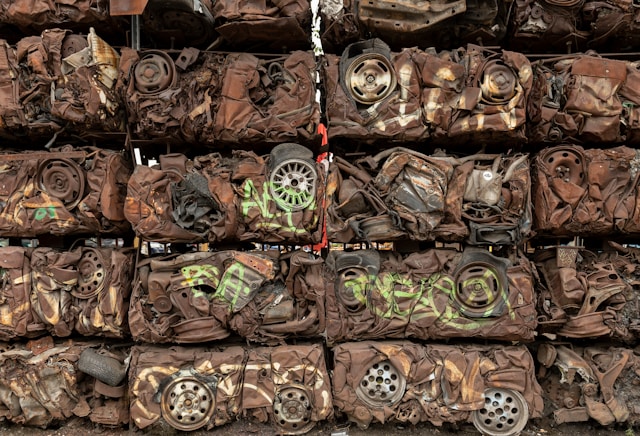Table of Contents:
- Understanding Scrap Metal Recycling
- The Environmental Impacts of Metal Production
- How Scrap Metal Recycling Benefits the Environment
- The Economic Advantages of Scrap Metal Recycling
- Scrap Metal Recycling and the Circular Economy
- Reducing the Carbon Footprint Through Recycling
Understanding Scrap Metal Recycling
Recycling scrap metal is essential to modern waste reduction, channeling materials into the production cycle. This process involves collecting, sorting, shredding, and melting metal scraps, encompassing everything from aluminum cans to end-of-life vehicles. As consumers and industries participate in recycling, the repurposing cycle for metals becomes a critical pillar for conserving resources and fostering sustainable development. Engaging in practices like recycling scrap cars Morris County NJ contributes to the economy and preserves the environment for future generations.
The Environmental Impacts of Metal Production
Harnessing virgin materials for metal production is energy- and resource-intensive, often leading to detrimental environmental effects. The excavation of ores results in massive land disruption and biodiversity loss. Energy consumption during extraction and processing contributes significantly to carbon emissions. Research has repeatedly confirmed that the sustainability of metal resources is under threat due to these practices. Still, positive news from environmental advocates highlights how adopting comprehensive recycling practices can counteract these adverse outcomes.
How Scrap Metal Recycling Benefits the Environment
Scrap metal recycling is a beacon of environmental responsibility, offering manifold benefits. Notably, it dramatically diminishes the call on natural metal reserves, preserving them for longer durations. Energy consumption is markedly less when recycling metals than extracting virgin ore — a significant boon for efforts to curb climate change. Additionally, recycling prevents metals from languishing in landfills, where they could potentially leach harmful substances into the surrounding soil and water tables, jeopardizing ecological and human health.
The Economic Advantages of Scrap Metal Recycling
The financial implications of scrap metal recycling extend far beyond mere cost-saving measures. By fostering an industry focused on extraction from salvage rather than solely from ore, economies benefit from a robust job market in both the recycling and manufacturing industries reliant on recycled materials. The influx of reused metals stabilizes commodity markets and supports sustainable business practices, creating a strong economic incentive to embrace recycling.
Scrap Metal Recycling and the Circular Economy
In the shift away from linear ‘take-make-dispose’ industrial processes, the circular economy emerges as a transformative alternative, underpinning the importance of recycling initiatives such as those involving scrap car recycling. This system champions the continuous use of resources and emphasizes the regeneration of products at the end of their life cycle. The Ellen MacArthur Foundation elucidates this concept, explaining how integrating design and innovation can prolong the lifespan of materials and minimize environmental impacts.
Reducing the Carbon Footprint Through Recycling
Metal recycling is a powerful tool for reducing the consequences of climate change. It offers a workable way to lessen the quantity of greenhouse gases emitted throughout the metal manufacturing process, lowering the industrial carbon footprint. For example, every ton of recycled steel reduces carbon dioxide emissions and saves a significant amount of iron ore and coal. Recycling is, therefore, an ecological and strategic advance in the more significant battle against global warming.




